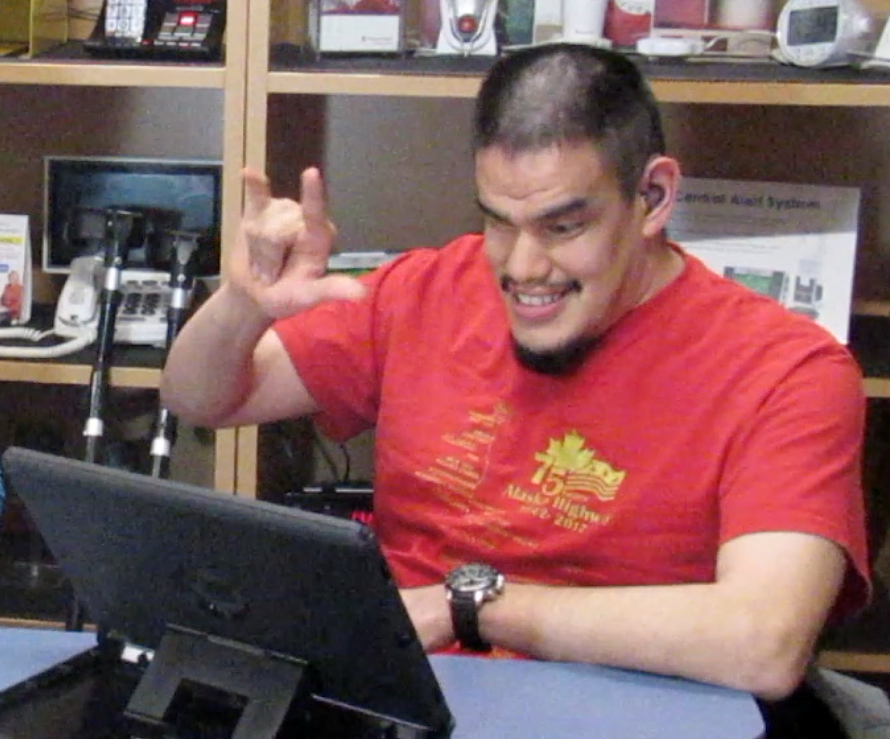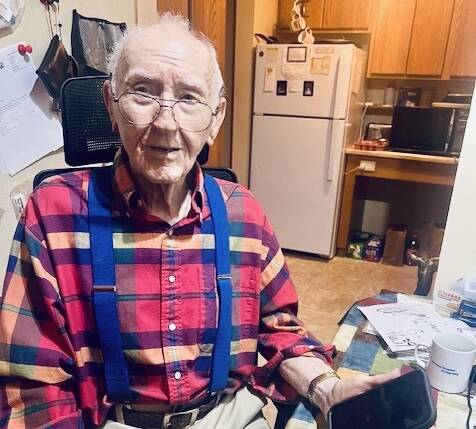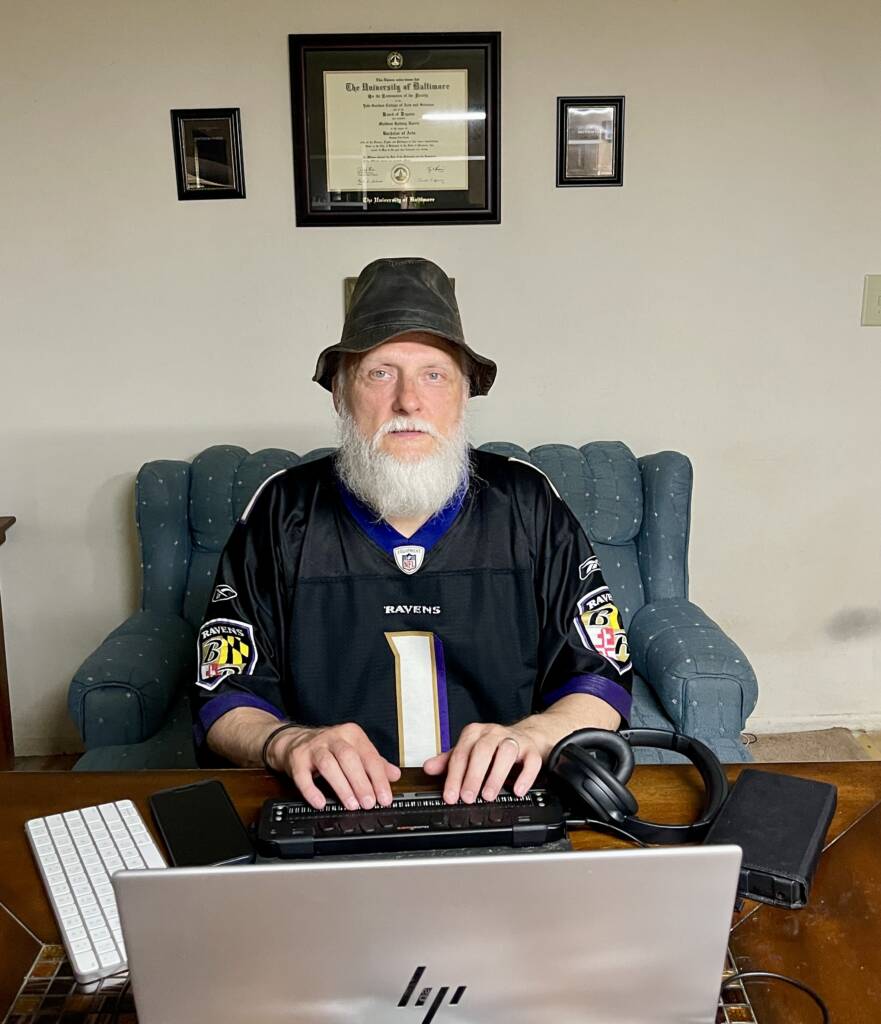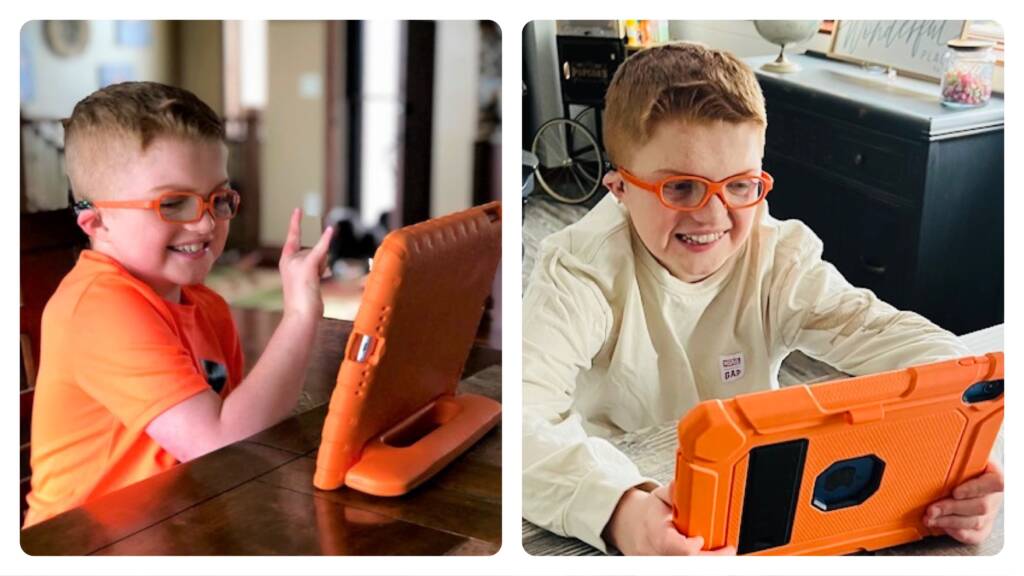Justin Scott surprises his mother every day with what he is capable of communicating. The 31-year-old Alaskan Native loves finding new ways to express himself. However, not too long ago, communication was a barrier for Justin, who is non-verbal. He has cerebral palsy as well as significant hearing and vision loss, which made communicating with his friends and family difficult.
Justin’s mom, Cheri, learned about akCanConnect, part of the National Deaf-Blind Equipment Distribution Program, and it became a valuable resource in helping him overcome some of those communication barriers. “Justin is so much more capable than anybody thought,” says Cheri. “His technology is the key to people being aware of what he’s thinking about and what’s important to him.”
Before akCanConnect, Justin used an older iPad to cut video and audio clips that he would then play back to communicate his wants, needs, and feelings. However, the iPad was old. It couldn’t hold a charge and it no longer had the capacity to save information or content. Justin could type, sign, and write, but if he was communicating with someone who wasn’t part of his family or a caregiver, it was difficult for him to be understood.
Justin’s communication barriers reached far beyond face-to-face expression. It was nearly impossible for him to independently connect with friends and family using a regular phone or the Internet. That changed when Justin received an iPad and high-contrast Bluetooth keyboard through akCanConnect.
An akCanConnect specialist evaluated Justin’s distance communication needs and goals and determined the best equipment to meet those needs. Justin was trained by an akCanConnect specialist on how to use his new adaptive equipment and now Justin is able to express himself and communicate with his family and friends using the iPad and high-contrast Bluetooth keyboard he received through the program.
Before receiving his iPad, Justin couldn’t communicate with Cheri while he was at Boy Scout camp. Now he’ll be able to keep in touch with her while he is away. Using his iPad, he will also have a stronger voice to make known what activities he wants to participate in and lead independently.
“Justin has learned to be assertive about who gets to hold his iPad,” says Cheri. “This is his voice, and it would be like telling somebody they couldn’t talk anymore if you take their voice away.”
Justin’s girlfriend, Crystal, lives in Whitehorse, Canada, and they visit each other once or twice a year for a week at a time. Before akCanConnect, Justin could only email Crystal using his mom’s phone. He was able to jot down a few words; however, he needed his mom to make the sentences coherent, which meant she was in the middle of every conversation they had. Now, using his iPad, Justin can FaceTime with Crystal multiple times a week and have private, meaningful moments with her.
“Having FaceTime has been amazing for their relationship, and I think they miss being together,” says Cheri. “It doesn’t matter if anybody talks, it’s just about being with the person you love.”
iCanConnect is a national program with local contacts. To find your state iCanConnect contact, visit www.icanconnect.org/states or call 800-825-4595.



